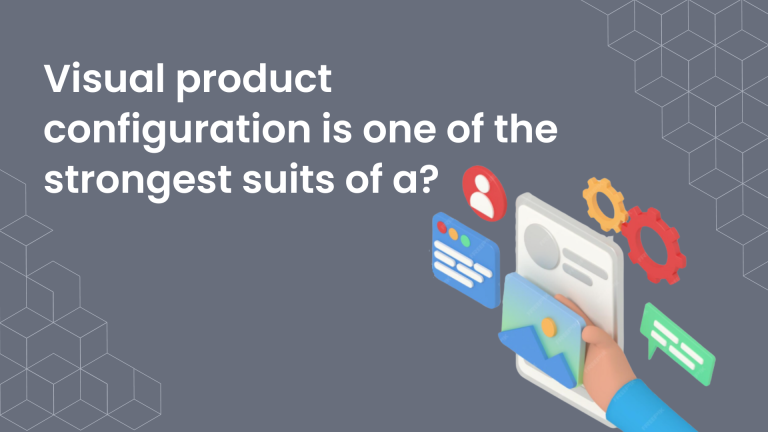The soy candle industry represents one of the most accessible and potentially profitable segments of the handmade goods market, offering aspiring entrepreneurs an opportunity to transform creativity into revenue with relatively modest initial investment. As consumers increasingly seek natural, eco-friendly alternatives to traditional paraffin candles, soy candles have surged in popularity, creating robust demand for artisan products that combine quality craftsmanship with sustainable practices. Whether you’re looking to supplement existing income, build a full-time business, or create a scalable brand in the thriving market for custom candles, understanding how to start making soy candles for profit requires knowledge that extends far beyond basic candle-making techniques.
Starting a profitable soy candle business involves mastering the craft, developing distinctive products, establishing efficient production systems, building a compelling brand, and implementing effective marketing strategies. Success demands balancing artistic creativity with business discipline, quality standards with cost management, and customer satisfaction with profitability. This comprehensive guide explores the essential steps for launching and growing a profitable soy candle business, from initial planning through scaling operations.
Understanding the Soy Candle Market Opportunity
Before investing time and resources into soy candle production, understanding market dynamics, consumer preferences, and the competitive landscape informs strategic decisions that position your business for success.
The global candle market exceeds $13 billion annually, with soy candles representing one of the fastest-growing segments. Consumer trends favoring natural products, sustainability, and supporting small businesses create ideal conditions for artisan soy candle makers. Scent candles dominate the market, with fragrance being the primary purchase driver for most consumers, though aesthetic appeal, burn quality, and brand values also influence buying decisions.
Market research reveals several profitable niches within the broader soy candle market. Premium scent candles emphasizing unique, sophisticated fragrances command higher prices from consumers seeking luxury experiences. Natural and organic candles appeal to health-conscious buyers willing to pay premiums for clean ingredients and sustainable practices. Custom candles with logo branding serve the corporate gift and promotional product markets. Specialty candles addressing specific needs—meditation, aromatherapy, seasonal celebrations, or home ambiance—differentiate products in crowded markets.
Understanding your target customer clarifies product development, pricing, and marketing strategies. Are you targeting budget-conscious consumers seeking affordable home fragrances, or affluent buyers investing in luxury lifestyle products? Does your ideal customer prioritize sustainability, unique aesthetics, local production, or therapeutic benefits? Clear customer definition prevents the common mistake of trying to appeal to everyone, which typically results in appealing to no one strongly enough to drive purchases.
Competitive analysis examines what other soy candle makers offer, their pricing strategies, branding approaches, and market positioning. This research isn’t about copying competitors but identifying gaps, opportunities for differentiation, and insights into what works. Visit local stores carrying candles, browse online marketplaces like Etsy and Amazon Handmade, attend craft fairs, and analyze successful candle brands’ social media presence. Note what attracts you as a consumer and what leaves you unimpressed—these observations inform your own product development.
Step 1: Master Soy Candle Making Fundamentals
Profitable businesses require consistent product quality that meets or exceeds customer expectations. Investing time in mastering soy candle making fundamentals before launching commercial operations prevents costly mistakes, negative reviews, and damage to your emerging reputation.
Understanding Soy Wax Characteristics
Soy wax differs significantly from paraffin and other waxes, with unique properties that affect techniques, outcomes, and product characteristics. Made from hydrogenated soybean oil, soy wax burns cleaner with minimal soot, holds fragrance well, and offers excellent container adhesion. However, soy wax is softer than paraffin, limiting certain candle styles, and can be more temperamental during production.
Multiple soy wax varieties exist, each formulated for specific applications. Container blend soy waxes work best for candles poured into jars or tins, while pillar blend soy waxes (often mixed with other waxes for hardness) enable free-standing candles. Some suppliers offer specialty soy waxes optimized for specific characteristics like enhanced scent throw or smooth tops.
Testing different soy wax brands reveals performance variations. Golden Brands, Nature’s Way, and EcoSoya represent popular options, each with distinct characteristics affecting pour temperature, cure time, fragrance retention, and final appearance. Many successful makers of custom candles test multiple wax brands before selecting the one delivering results aligned with their quality standards and brand positioning.
Perfecting the Production Process
Consistent quality requires standardized processes documented through detailed procedures. Every variable—wax temperature, fragrance load, pour temperature, cooling conditions—affects final products. Successful commercial candle makers maintain production logs recording specifications for each product and batch, enabling consistency and troubleshooting when issues arise.
Temperature control represents the most critical variable in soy candle production. Soy wax typically melts at 120-180°F depending on the specific formulation. Most container soy waxes perform best when heated to 185°F, fragrance added around 180-185°F, and poured at 125-145°F. These temperatures affect scent throw, surface finish, and glass adhesion. Using reliable thermometers and maintaining documented temperature protocols ensures batch-to-batch consistency.
Fragrance loading for soy candles typically ranges from 6-10% by weight, with 8% representing a common starting point. Soy wax holds fragrance well but has limits—exceeding appropriate loads causes seepage, poor burning, or frosting. Each fragrance oil behaves differently in soy wax, making testing essential. Premium scent candles might use carefully selected fragrances at optimal loads that maximize both cold throw (unlit scent) and hot throw (burning scent) without compromising burn quality.
Wick selection determines whether candles burn properly or develop problems like tunneling, mushrooming, or excessive smoking. Soy wax generally requires different wick sizes than paraffin for equivalent container sizes. Wicking guidelines from suppliers provide starting points, but testing specific combinations of your chosen wax, fragrance load, container size, and dye concentration confirms proper performance. Maintain detailed records of successful wick pairings for each product variant.
Curing time significantly impacts soy candle quality. While soy candles technically solidify within hours, optimal scent throw and burn performance develop over 1-2 weeks as wax fully crystallizes and fragrances stabilize. Building cure time into production schedules prevents selling candles before they reach peak performance—a crucial quality standard for building customer satisfaction and repeat business.
Comprehensive Burn Testing
Professional candle makers conduct extensive burn testing before selling products. Proper testing involves burning candles in controlled conditions, monitoring performance, and documenting results. Each unique combination of wax, fragrance, container, and wick requires separate testing since variables interact in complex ways.
Standard burn testing protocols involve lighting candles for four-hour periods (the maximum recommended single burn time for most candles), extinguishing, allowing complete cooling, then repeating until candles completely burn. During burns, monitor melt pool formation (should reach container edges within 2-4 hours), flame height (should remain stable at 1/2 to 1 inch), smoke or soot production (should be minimal), glass temperature (should remain safe to touch or only moderately warm), and overall burn progression.
Testing also evaluates scent throw under real-world conditions. How strong is the fragrance in different room sizes? Does scent remain consistent throughout the candle’s life or fade? Does the candle produce the intended aromatic experience?
Documentation of testing results creates a knowledge base informing production specifications and continuous improvement. When issues arise—and they will—testing records help diagnose causes and develop solutions.
Step 2: Develop Your Product Line and Brand Identity
Successful businesses selling custom candles differentiate through distinctive products and compelling brand identities that resonate with target customers.
Creating Your Signature Product Line
Rather than offering every possible fragrance and size, successful candle businesses typically launch with curated collections of 6-12 signature scents that showcase their aesthetic and appeal to target customers. This focused approach allows deeper investment in perfecting each product, creates manageable inventory, and presents a cohesive brand story.
Fragrance selection represents perhaps the most important product decision. Your signature scents should appeal to your target market while differentiating from competitors. Research reveals that vanilla, lavender, and seasonal scents (pumpkin spice, pine, etc.) consistently rank among best-sellers. However, unique fragrance blends or unexpected scent combinations can distinguish your custom candles from mass-market alternatives.
Consider organizing fragrances into collections that tell stories or serve specific purposes. A “Seasonal Collection” might feature fragrances aligned with different times of year. A “Wellness Collection” could emphasize essential oil blends promoting relaxation or energy. A “Luxury Collection” might feature sophisticated, complex scents in premium packaging. Collections create structure that helps customers navigate options and positions products for different price points and occasions.
Container selection impacts both aesthetics and costs. Glass jars remain most popular for soy container candles, available in numerous styles, sizes, and colors. Amber or colored glass creates vintage or apothecary aesthetics, while clear glass showcases candle color and allows visibility of burn progress. Tins offer durability and travel-friendliness while reducing shipping costs compared to glass. Premium products might use unique vessels—ceramic containers, vintage-inspired jars, or decorative tins—that justify higher pricing and become reusable items customers value beyond the candle itself.
Size offerings should consider both consumer preferences and your profitability. Small sizes (4-6 oz) provide affordable entry points and gift options. Medium sizes (8-10 oz) represent the most popular category for personal use. Large sizes (12-16 oz or more) appeal to consumers seeking value and extended burn time. Many successful makers of scent candles offer the same fragrances across multiple sizes, providing options while maintaining manageable SKU counts.
Building a Memorable Brand
Your brand encompasses much more than a logo—it represents the complete experience customers have with your business, the values you communicate, and the emotional connections you create. Strong branding transforms commodity products into sought-after goods that command premium prices and inspire customer loyalty.
Brand identity begins with fundamental decisions about who you are and what you stand for. What makes your candles different from countless others in the market? Is your brand about sustainability and natural living? Luxury and sophisticated aesthetics? Local craftsmanship and community connection? Therapeutic benefits and wellness? Your brand positioning should feel authentic to you while resonating with target customers.
Visual identity including logos, color palettes, typography, and packaging design communicates brand personality at a glance. Professional design investment pays dividends through polished presentation that builds credibility and justifies premium pricing. Custom candles with logo designs on containers, packaging, and marketing materials establish brand recognition and professional appearance.
For many soy candle businesses, labels represent the primary visual branding element. Custom labels can be ordered from specialty printers or created using quality printers and label stock. Labels should include your logo and brand name, fragrance name, net weight, safety warnings, and any certifications or claims (natural, hand-poured, etc.). The design should be consistent across products while allowing fragrance-specific customization.
Brand story connects emotionally with customers by sharing why you make candles, what inspires your creations, and what values guide your business. Authentic stories about sustainable sourcing, family traditions, personal journeys, or community impact create meaningful differentiation that transcends product features. Share your story on product packaging, your website, social media, and in-person customer interactions.
Step 3: Set Up Your Production Workspace and Source Materials
Efficient, safe production requires appropriate workspace and reliable material suppliers that balance quality with cost considerations.
Creating Your Candle Making Workshop
Starting a soy candle business doesn’t require expensive commercial space initially. Many successful candle makers begin in home spaces—kitchens, garages, basements, or spare rooms—before scaling to dedicated production facilities. The essential requirements include adequate ventilation, appropriate electrical service for heating equipment, safe storage for materials, and compliance with local regulations regarding home-based businesses.
Workspace organization impacts efficiency and safety. Designate separate areas for material storage, production, curing, and packaging. Keep wax, fragrance oils, and finished products away from heat sources. Maintain clear workspaces that minimize accident risks and enable efficient production flow.
Equipment needs for starting remain modest. Essential items include:
- Wax melter or double boiler for safely melting soy wax
- Accurate thermometer (preferably digital) for monitoring temperatures
- Scale for precise measurement of wax and fragrance oils
- Pouring pitcher for transferring melted wax to containers
- Heat-resistant gloves for safety
- Wick centering devices to maintain proper wick positioning
- Workspace surfaces that can withstand heat and are easy to clean
As production scales, consider upgrading to dedicated wax melters with temperature controls, multiple pouring pitchers for efficiency, and automated wick centering systems that improve consistency.
Sourcing Quality Materials at Profitable Prices
Material costs directly impact profitability, making supplier selection critical. Balance quality requirements with cost considerations, recognizing that the cheapest materials don’t always deliver the best value if they compromise product quality or customer satisfaction.
Soy wax can be purchased from specialized candle supply companies like CandleScience, Lone Star Candle Supply, and Nature’s Garden. Buying in larger quantities reduces per-pound costs significantly—purchasing 50-pound cases rather than 5-pound bags might cut wax costs by 30-40%. Calculate your expected monthly production and buy quantities that offer price benefits without tying up excessive capital in inventory.
Fragrance oils represent the most expensive ingredient in scent candles, typically ranging from $15-40 per pound depending on quality and scent complexity. Supplier reputation matters significantly for fragrances—poor quality oils may smell harsh, cause burning problems, or fade quickly. Reputable suppliers include CandleScience, Bramble Berry, and Aztec Candle & Soap. Many offer sample sizes enabling testing before committing to larger quantities.
Containers impact both product aesthetics and costs. Wholesale container suppliers like Specialty Bottle, SKS Bottle, or candle-specific suppliers offer better pricing than retail sources. Buying in case quantities (often 12-48 units) reduces per-unit costs. Consider standardizing containers across product lines to maximize volume discounts—using the same jar for multiple fragrances simplifies inventory and improves purchasing power.
Wicks are relatively inexpensive, with pre-tabbed options offering convenience worth the slight price premium for small-scale production. As volume increases, buying bulk wick rolls and tabs separately reduces costs.
Labels can be produced in-house using quality printers and label stock, or ordered from commercial printers. Professional printing offers superior quality and durability while in-house production provides flexibility. Evaluate costs and capabilities to determine the best approach for your volume and budget.
Building relationships with suppliers often yields benefits beyond pricing—technical support, product recommendations, and occasionally special pricing for growing businesses. Many suppliers offer wholesale programs requiring business licenses or tax ID numbers but providing better pricing than retail purchases.
Step 4: Price Products for Profitability
Proper pricing represents one of the most challenging aspects of starting a profitable soy candle business. Many makers undercharge, covering direct costs but failing to compensate for labor, overhead, and profit, ultimately creating unsustainable businesses despite strong sales.
Calculating True Costs
Comprehensive cost analysis includes all expenses, not just obvious material costs. Direct materials for an 8 oz soy candle might include:
- Soy wax (approximately 6.5 oz): $1.00
- Fragrance oil (8% load, 0.52 oz): $1.50
- Wick and tab: $0.20
- Container: $2.00
- Label: $0.50
- Total direct materials: $5.20
However, total costs extend far beyond materials. Labor for production (pouring, labeling, packaging) might add $3.00 per candle. Overhead costs including workspace, utilities, equipment depreciation, website hosting, insurance, and marketing might allocate another $2.00 per candle. The true cost per candle totals approximately $10.20—nearly double the material cost.
Wholesale pricing (for private label candles or retail partnerships) typically marks up total costs by 1.8-2.2x, yielding wholesale prices of $18.50-22.50 for this example candle. Retail pricing (direct to consumer) typically marks up total costs by 3-5x, suggesting retail prices of $30-50.
These formulas ensure that prices cover all expenses while generating profit. Many successful makers of premium custom candles price at the higher end of these ranges, supported by superior quality, distinctive branding, and exceptional customer experience.
Competitive Positioning and Perceived Value
Pricing also communicates positioning. Premium pricing signals quality and exclusivity, attracting customers seeking luxury experiences. Value pricing emphasizes affordability, appealing to budget-conscious consumers. Your pricing should align with brand positioning and target customer expectations.
Packaging, presentation, and storytelling influence perceived value, enabling premium pricing for products with similar material costs to competitors. Investing in beautiful packaging, professional photography, compelling descriptions, and memorable unboxing experiences justifies higher prices by delivering complete experiences rather than merely functional products.
Step 5: Establish Sales Channels and Marketing Strategy
Even exceptional products require effective marketing and accessible sales channels to generate revenue. Successful soy candle businesses typically employ multi-channel strategies that diversify revenue sources and reach customers where they prefer to shop.
Online Sales Platforms
E-commerce provides tremendous opportunity for candle businesses, enabling sales beyond geographic limitations and building national or international customer bases.
Your own website offers maximum control, brand consistency, and customer data ownership, though requires investment in development, hosting, and ongoing maintenance. Platforms like Shopify, WooCommerce, or Squarespace enable professional websites without extensive technical expertise. Your website serves as brand headquarters, showcasing your story, values, and complete product range while capturing email addresses for ongoing marketing.
Etsy remains the leading marketplace for handmade goods including custom candles, offering built-in traffic and simplified selling for makers uncomfortable with website management. The platform’s 6.5% transaction fee plus payment processing fees reduce margins compared to your own site, but the exposure to Etsy’s massive customer base often justifies the costs, particularly for new businesses building awareness.
Amazon Handmade provides access to Amazon’s enormous customer base through a platform specifically for artisan products. Approval requires meeting criteria for handmade production, but acceptance provides powerful sales potential. Amazon’s logistics programs can handle fulfillment, though fees reduce margins significantly.
Social commerce through Instagram and Facebook enables selling directly within social platforms where customers already spend time. Integrated shopping features allow product browsing and purchase without leaving social apps, reducing friction in the customer journey.
Local and In-Person Sales
Despite e-commerce dominance, local sales remain highly profitable for candle businesses due to higher margins (no shipping costs or platform fees) and personal customer connections.
Farmers markets and craft fairs provide excellent venues for launching candle businesses. Direct customer interaction enables immediate feedback, relationship building, and storytelling that builds brand loyalty. Successful market vendors invest in attractive booth displays, product sampling (lighting candles so customers experience fragrance), and collecting email addresses for ongoing marketing.
Local retail partnerships with boutiques, gift shops, or specialty stores expand distribution and build brand credibility. Wholesale pricing (typically 50% of retail) reduces per-unit revenue but generates volume and brand exposure. Select retail partners whose customer base aligns with your target market and whose brand values complement yours.
Pop-up shops and vendor events offer lower-commitment alternatives to permanent retail presence while reaching new customers. Participate in holiday markets, local festivals, and special events where target customers gather.
Building a Marketing Engine
Consistent marketing generates the awareness and interest that drive sales. Effective strategies for private label candles and consumer brands alike include:
Social media marketing particularly on visual platforms like Instagram and Pinterest showcases your scent candles through beautiful imagery, behind-the-scenes production content, customer testimonials, and lifestyle photography positioning candles within aspirational contexts. Consistency matters more than perfection—regular posting builds audience and algorithmic favorability.
Email marketing maintains customer relationships and drives repeat purchases. Collect email addresses through website sign-ups, market interactions, and purchase incentives, then nurture subscribers with new product announcements, special offers, candle care tips, and brand stories. Email consistently generates the highest ROI of digital marketing channels.
Content marketing through blogs, videos, or social content establishes expertise while attracting customers searching for related information. Articles about candle care, home fragrance tips, or sustainable living attract readers who might become customers.
Influencer partnerships with bloggers, Instagrammers, or YouTubers whose audiences align with your target market amplify reach and build credibility through third-party endorsements. Start with micro-influencers (5,000-50,000 followers) who often collaborate in exchange for free products and typically generate higher engagement than massive accounts.
Customer reviews and testimonials provide powerful social proof that influences purchase decisions. Actively request reviews from satisfied customers, showcase testimonials on your website and marketing materials, and respond professionally to all feedback including criticism.
Step 6: Scale Operations While Maintaining Quality
As demand grows, scaling production efficiently while maintaining the quality standards that built your reputation requires systematic approaches and sometimes difficult transitions.
Streamlining Production
Efficiency improvements reduce labor costs per unit, improving profitability as volume increases. Batching similar products together (pouring all vanilla candles one day, all lavender the next) reduces setup time and improves focus. Creating production templates and checklists ensures consistency across batches. Investing in time-saving equipment like larger capacity melters or automated wick placement systems pays dividends when production volume justifies the investment.
Inventory Management
Growing businesses require more sophisticated inventory tracking covering raw materials, work-in-progress, and finished goods. Understanding exactly what you have, what you need, and what’s selling enables smarter purchasing, prevents stockouts, and minimizes excess inventory tying up capital.
Considering Wholesale and Private Label Opportunities
Wholesale relationships with retailers can dramatically increase volume, though at lower per-unit margins. Private label candles manufactured for other brands provide steady revenue and volume predictability but require different capabilities including consistent large-batch production, custom labeling flexibility, and often shorter lead times.
Hiring Help
Eventually, one person cannot handle all aspects of a growing candle business. Initial hiring might focus on production assistance, freeing you for business development, marketing, and growth activities where your expertise creates the most value. As volume grows, consider specialized roles in marketing, customer service, or operations management.
Conclusion
Starting a profitable soy candle business requires balancing creative passion with business discipline, quality craftsmanship with cost consciousness, and brand building with sales execution. Success demands investing time in mastering production techniques, developing distinctive products that resonate with target customers, establishing efficient operations, implementing strategic pricing, building multi-channel sales presence, and marketing consistently to generate awareness and demand.
The opportunity in soy candles remains robust, driven by consumer preferences for natural products, handmade goods, and shopping experiences that connect them with makers and their stories. Whether you’re creating artisan scent candles for luxury markets, developing custom candles with logo branding for corporate clients, or manufacturing private label candles for retail partners, the fundamentals remain consistent: make exceptional products, build a compelling brand, understand your numbers, and serve customers exceptionally well.
The journey from hobbyist to profitable business owner requires patience, persistence, and continuous learning. Each batch teaches lessons, each customer interaction provides insights, and each challenge builds capabilities. By following the comprehensive framework outlined here—mastering your craft, developing your brand, establishing efficient operations, pricing appropriately, marketing effectively, and scaling strategically—you position yourself for success in the rewarding and profitable world of soy candle making.










